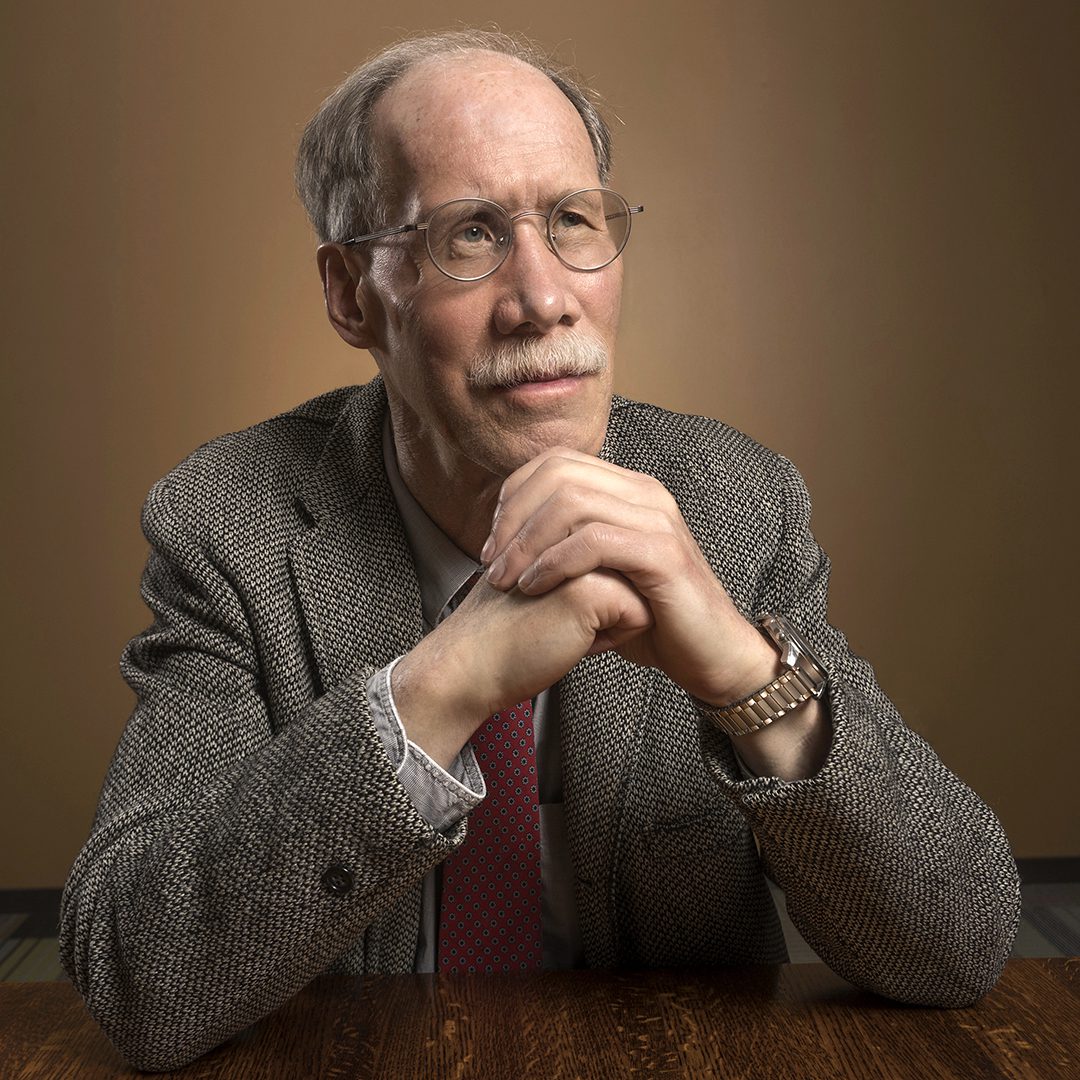Civil Procedure Guru Prof. Richard Marcus Prepares Generations of Lawyers for Practice

After 43 years of educating law students, UC Law SF Professor Richard Marcus has amassed unmatched expertise in the field of civil procedure, even helping to “write the rules” for federal civil litigation through his role on a key policymaking committee of the federal judiciary.
Known as a living legend in the field of civil procedure, Professor Richard Marcus has co-written leading books on the subject and helped shape new rules for civil cases through his work on an important committee that sets policies for federal courts.
But perhaps the greatest achievement of his 43-year career is the impact he’s had on generations of law students who say he did more than teach them how to grasp civil procedure and think like lawyers. He also gave his time and wisdom generously, helping them achieve their dreams.
“He doesn’t just believe in students, he actively supports them,” said Briana Lynn Rosenbaum ’04, who followed in her mentor’s footsteps to become a professor of civil procedure and evidence at the University of Tennessee College of Law.
When Rosenbaum wanted to pursue a prestigious clerkship, and later when she chose to become a law professor, she said Marcus gave advice, wrote letters, and made phone calls to help her accomplish her goals.
“I can’t overstate the influence that Professor Marcus has had on my life,” Rosenbaum said. “I am incredibly lucky to have had Professor Marcus as a teacher, and I only hope I can carry on his tradition of teaching with excellence and equity.”
When another former student Bruce Wagman ’91 said he wanted to focus his practice on an esoteric field – animal law – he said Marcus was “100% encouraging and helpful.” Wagman, an attorney with Riley Safer Holmes & Cancila LLP, has since become one of the nation’s leading animal law attorneys and has for decades taught animal law courses at multiple law schools, including UC Law SF.
“He’s the one who made me excited about civil procedure,” Wagman said. “It may sound dry to a lot of people, but it’s some of the most important stuff. You can lose a case on the procedural side before you ever get to the merits.”
Marcus, who grew up in San Francisco and earned his law degree from UC Berkeley, said he was drawn to civil procedure because it aspires to be neutral. He calls it “the rules of the road” for civil litigation, which determine how and when litigants can file pretrial motions, seek evidence from opposing parties, and choose and instruct juries that decide cases.
Last year, he was appointed Reporter to the Judicial Conference Advisory Committee on Civil Rules, after having served as Associate Reporter since 1996. The committee considers proposed amendments to the Federal Rules of Civil Procedure, which govern non-criminal proceedings in U.S. district courts. In his role as Reporter, he analyzes possible rule changes, writes draft rulemaking proposals, and reviews and summarizes public comments on proposals.
The committee is currently working to update rules on privilege logs, or lists of documents claimed to be shielded by attorney-client privilege, and how to handle arbitration clauses in class actions. The proposed changes have attracted strong opinions from interested parties, some of whom are litigating multibillion-dollar class actions.
“As proof that these rules are important, a lot of lawyers and parties want to be heard on this subject,” Marcus said. “I’m dealing with hundreds of thousands of comments.”
Marcus started teaching at law schools in the Midwest in 1981 before coming to UC Law SF as a visiting professor in 1988 and joining the permanent faculty one year later. He has co-authored the leading treatise and casebook on civil procedure, as featured in the 2001 film “Legally Blonde.” When he’s not teaching law students, working on rule changes, or writing books, he can be found traveling across the globe to speak at academic conferences in Europe, Asia, and South America.
“Rick Marcus is deservedly a legend in the field of civil procedure,” said UC Law SF Provost & Academic Dean Morris Ratner. “He has launched the careers of generations of litigators who no doubt hear his larger-than-life voice when they work through knotty procedural questions – a voice that brings order to the chaos of an ever-evolving field.”
One of Marcus’ past students is UC law SF Board of Directors Chair Simona Agnolucci ‘06, managing partner of Willkie Farr & Gallagher LLP’s San Francisco office. She said no one in her class can forget Marcus’ “infamous ‘Got Rules?’ t-shirt” or his stories about the Advisory Committee. She said the professor gave students real-life fact patterns to pick apart and prepared them for the future.
“He taught us how to be lawyers,” she said. “And, having appeared before many judges since those days, I sincerely appreciate the way he grilled us in class. He was training us for reality.”
Though Marcus remains modest, insisting that he hasn’t had much impact on the world or U.S. legal system, his students beg to differ. Agnolucci’s husband, Elias Batchelder ’06, who serves as Director of Amicus Litigation for California’s Office of the State Public Defender, shared fond memories of Marcus’ “marvelous sense of humor” and the joy he took in challenging students to wrestle with difficult questions.
“He was always gracious with his time and helped both me and my wife (whom I met during our first year while taking his class) advance our careers,” Batchelder said. “I am immensely grateful at the artistry of his teaching.”